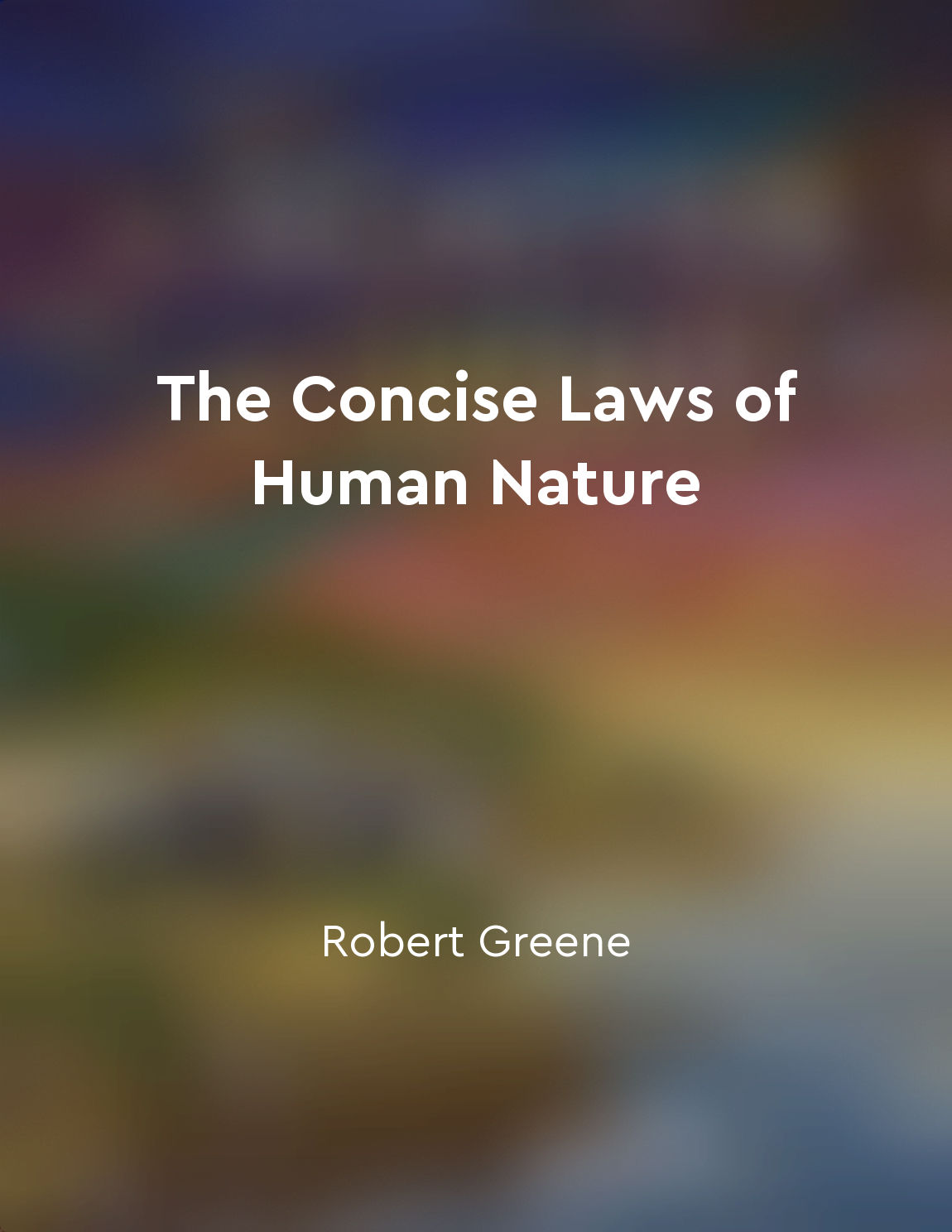Human nature is inherently selfish and competitive from "summary" of Hobbes: Leviathan by Thomas Hobbes
In the state of nature, where there is no overarching authority to enforce laws and maintain order, human beings are driven by their innate selfishness and competitiveness. Without the fear of punishment or the hope of reward, individuals act solely in their own self-interest, seeking to fulfill their desires and satisfy their needs without regard for others. According to Hobbes, this selfish and competitive nature stems from the fundamental drive for self-preservation. In the absence of a common power to protect them, individuals must constantly be on guard against potential threats to their safety and well-being. This perpetual state of insecurity leads them to view others as potential adversaries, always ready to take advantage of any opportunity to advance their own interests at the expense of others. Furthermore, Hobbes argues that human beings are naturally equal in their physical and mental capacities, leading to a constant state of competition for resources and power. In the absence of a strong authority to regulate their interactions, individuals are compelled to compete with one another in order to secure the means necessary for their survival and advancement. This competitive drive fuels a never-ending cycle of conflict and aggression, as each person seeks to outdo their rivals and come out on top. In this state of nature, where selfishness and competition reign supreme, there is little room for cooperation or mutual trust. Instead, individuals are forced to rely on their own wits and strength to navigate a hostile and unpredictable world. The relentless pursuit of self-interest creates a society marked by distrust, suspicion, and violence, as each person struggles to assert their own dominance and protect themselves from the machinations of others.- Hobbes's depiction of human nature as inherently selfish and competitive serves as a stark reminder of the harsh realities of life without a strong central authority to keep our baser instincts in check. Only through the establishment of a sovereign power capable of enforcing laws and maintaining order can we hope to escape the destructive forces of our own nature and build a more stable and harmonious society.
Similar Posts
The subjects must obey the sovereign's laws
In commonwealths, the subjects are bound to obey the laws established by the sovereign. This obligation arises from the social ...

The pursuit of enlightenment as the ultimate goal
In the quest for understanding, one must strive for a higher state of consciousness that transcends the limitations of the indi...
Government should serve the people
The aim of all political association is the preservation of the natural and imprescriptible rights of man. These rights are lib...

The pursuit of knowledge can also create inequality
The quest for knowledge is a noble endeavor that drives individuals to seek understanding and enlightenment. However, this purs...

People are often unconsciously drawn to those who mirror their own qualities
This concept reveals a fundamental truth about human nature: we are naturally attracted to those who reflect our own qualities....
Liberty is necessary for moral agency and decisionmaking
In order to fully understand the nature of moral agency and decision-making, it is essential to consider the concept of liberty...
The sovereign's power is derived from the consent of the people
The power of the sovereign, that is to say, the authority that is vested in the ruler, comes not from some divine right or inhe...

